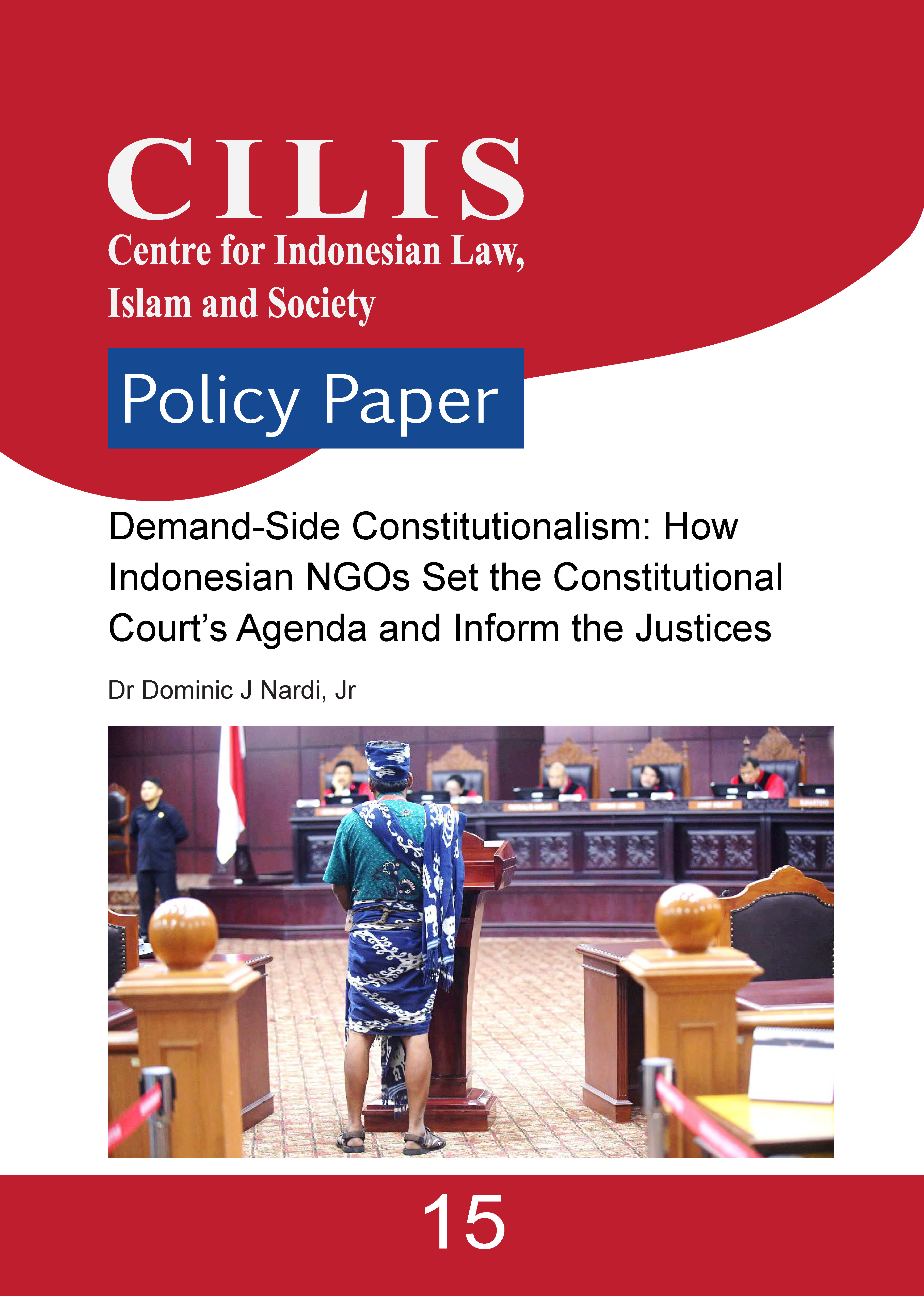No 15 (2018) by Dr Dominic J Nardi, Jr

Since its creation in August 2003, the Indonesian Constitutional Court’s decisions have legalised the defunct PKI (Partai Komunis Indonesia, Indonesian Communist Party), mandated an open party-list election system, invalidated efforts to privatise the electricity and water sectors, and required the government to formally recognise indigenous faiths. This paper argues that non-government organisations (NGOs) have had a crucial and underappreciated impact in determining both which cases reach the justices, and the content of the Court’s final decisions. It finds that NGOs are responsible for bringing the majority of socioeconomic claims, resulting in some of the Court’s most controversial and far-reaching decisions. In addition, the justices are significantly more likely to quote petitions submitted by NGOs, meaning that the information NGOs include in their briefs is critical in shaping the justices’ understanding of the legal and policy issues at stake. These findings have important implications for rule of law projects in Indonesia. In particular, they underline the importance of demand-side reforms. Donors should consider improving the capacity of NGOs to detect and inform the Constitutional Court about rights violations. They should also consider investing in the research capacities of NGOs as the justices rely heavily upon the information they provide.
Dr Dominic J Nardi, Jr is a political scientist whose research focuses on constitutional courts in Southeast Asia. He received his PhD in Political Science from the University of Michigan in 2018. He also has a law degree from Georgetown University and a Masters in Southeast Asian Studies from the Johns Hopkins School of Advanced International Studies. He has worked for a variety of USAID-funded governance reform projects in the region. In addition, he served as a special advisor to the Myanmar Parliament from 2014 to 2015. This article is adapted from his dissertation, Embedded Judicial Autonomy: How NGOs and Public Opinion Influence Indonesia’s Constitutional Court. His dissertation research was funded in part by the US-Indonesia Society and by the University of Michigan.